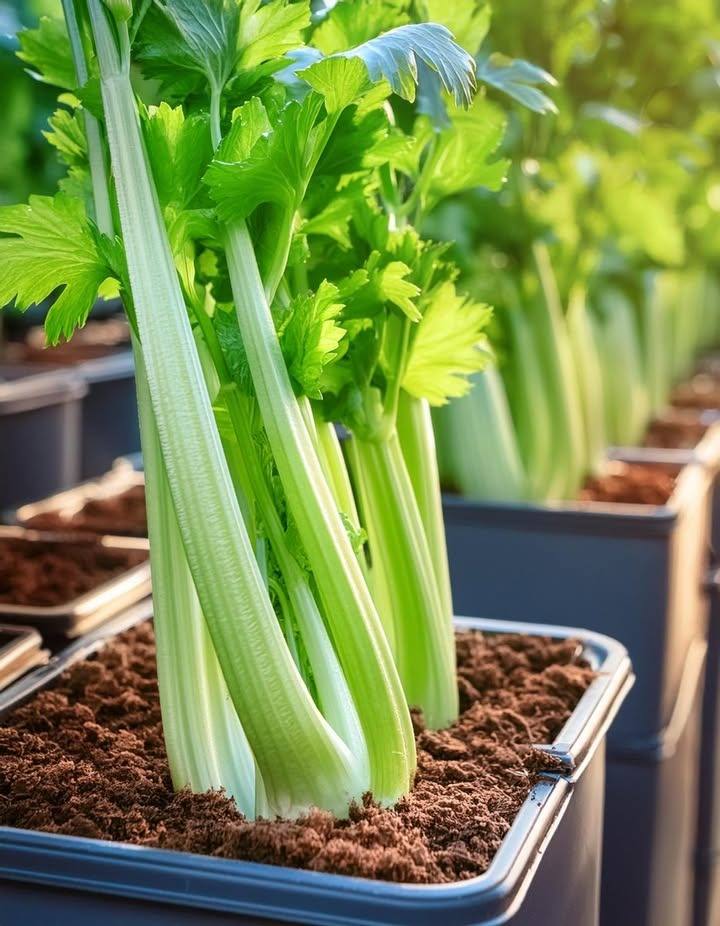Place containers where they receive at least 6 hours of direct sunlight daily.
If daytime temps exceed 75°F regularly, provide afternoon shade to prevent bolting.
Indoors, place near a sunny window or supplement with grow lights.
Step 7: Watering Celery in Containers
Celery is a water lover:
Keep soil consistently moist but not waterlogged.
Water daily or as needed to keep topsoil damp.
Avoid letting soil dry out, which causes bitterness and poor growth.
Use a saucer under pots to maintain humidity or mist leaves occasionally.
Step 8: Fertilizing Your Celery
Feed celery with a balanced liquid fertilizer every 2 weeks during the growing season.
Alternatively, use slow-release granular fertilizer at planting.
Avoid excessive nitrogen as it encourages leafy growth over stalk development.
Step 9: Mulching for Moisture and Temperature Control
Apply a 1-2 inch layer of organic mulch (straw, shredded leaves, or bark) on top of the soil in your container:
Helps retain soil moisture.
Regulates temperature and keeps roots cool.
Suppresses weeds.
Step 10: Supporting Your Celery Plants
Celery stalks can be fragile:
Support tall or heavy plants with stakes or small cages to prevent bending or breaking.
Remove damaged or yellow leaves to keep the plant healthy.
Step 11: Managing Pests and Diseases
